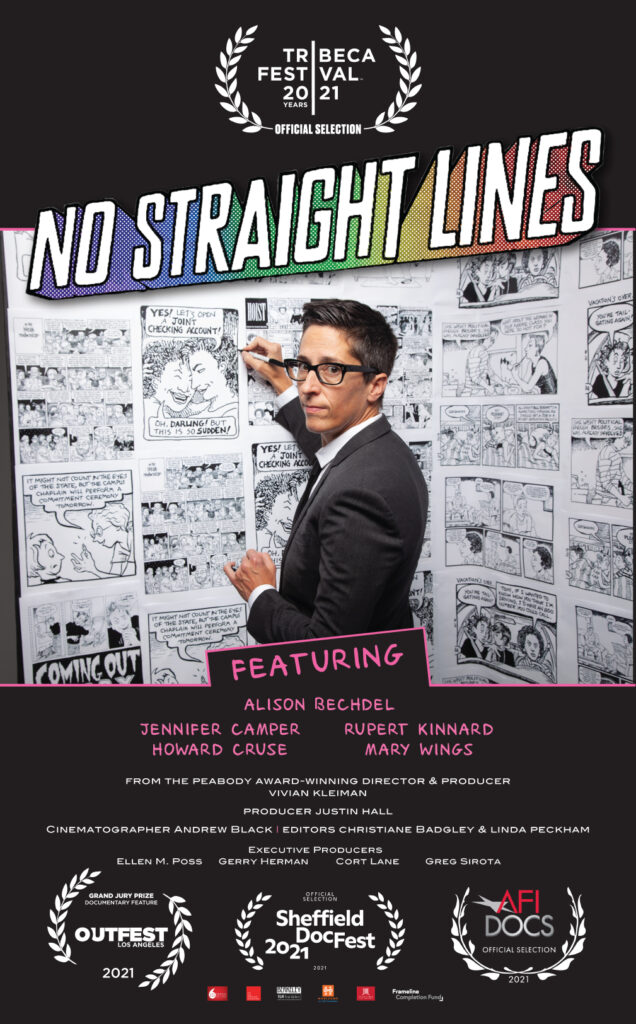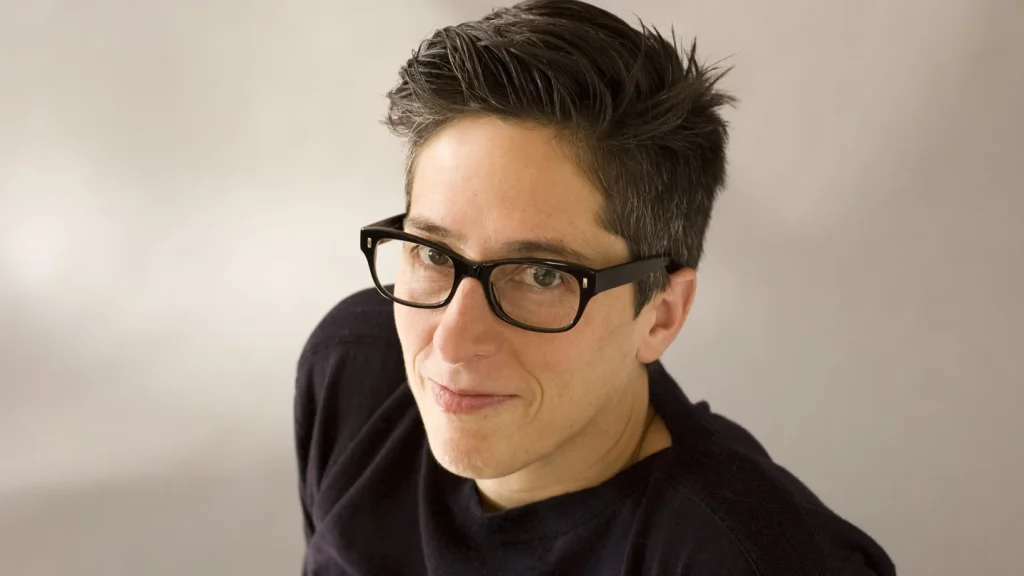‘No Straight Lines’ charts the rise of LGBTQ comics
Follow five scrappy queer artists from the margins of the underground comics scene to mainstream acceptance.
The road for queer comics from the margins of the underground comics scene to mainstream acceptance has been fraught with challenges.
No Straight Lines chronicles the journeys of Alison Bechdel, Howard Cruse, Mary Wings, Rupert Kinnard, and Jennifer Camper from their early DIY work to the international stage, and offers a fascinating window into everything from the AIDS crisis to the search for love and a good haircut.
The restrictive Comics Code of 1954 censored same-sex images from mainstream comics, and even the comix underground that emerged in the 1960s, supposedly embracing “free love,” initially excluded queerness. But in 1973, Mary Wings sat on her couch, grabbed a Rapidograph pen, and created Come Out Comics. Printed on an offset press in the basement of a women’s martial-arts studio, it was the first comic book published about a gay subject and by an out queer artist in the United States. The door was flung open.

Working independently and liberated from the censorship of publishers, without any expectation of sales to the general public, queer artists began telling their stories and openly exploring queer identity. The first queer comics were filled with stories of coming out, identity politics, and finding love in a complex world. As the community broadened and deepened over the next several decades, artists grappled with the essential issues of the day: from homophobia, misogyny and racism to same-sex marriage and worker’s rights, while still creating playful portraits of dating and bad hair days.
A vibrant community of gay bookstores, newspapers, magazines, and publishers enabled queer artists to earn enough money to sustain their passion. These artists analyzed their own communities and their relationship with American society in smart, funny, and profound ways, and provided a unique window into the hopes, fears, and fantasies of queer people.
The film’s narrative reaches its apex in 2006 with the overwhelming mainstream success of Alison Bechdel’s graphic memoir Fun Home, which was featured on the cover of TIME magazine as its 2006 Book of the Year, hit the New York Times best-seller list for 49 weeks, and was later adapted into a Tony-winning Broadway musical.
No Straight Lines opens on November 12 in theatres.
More information about the film here.






